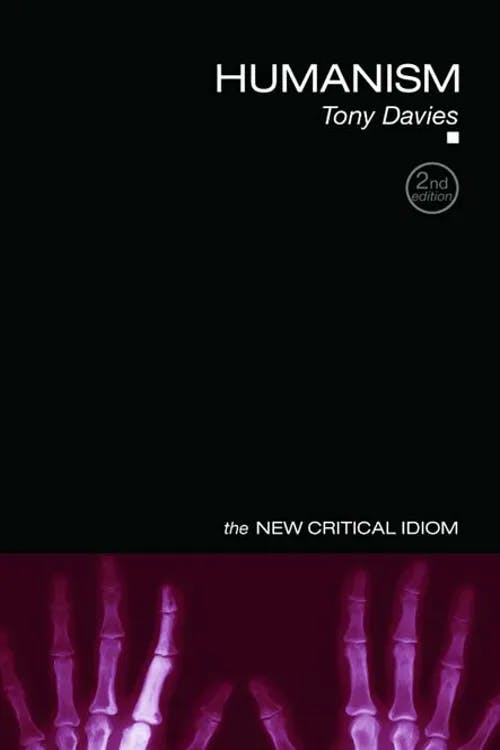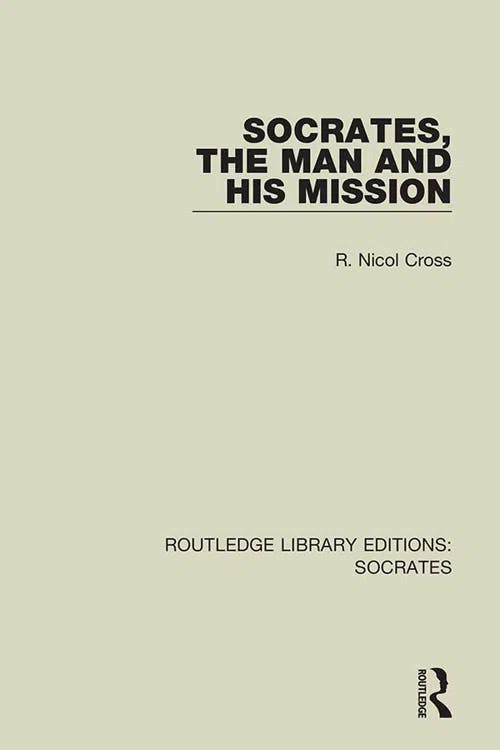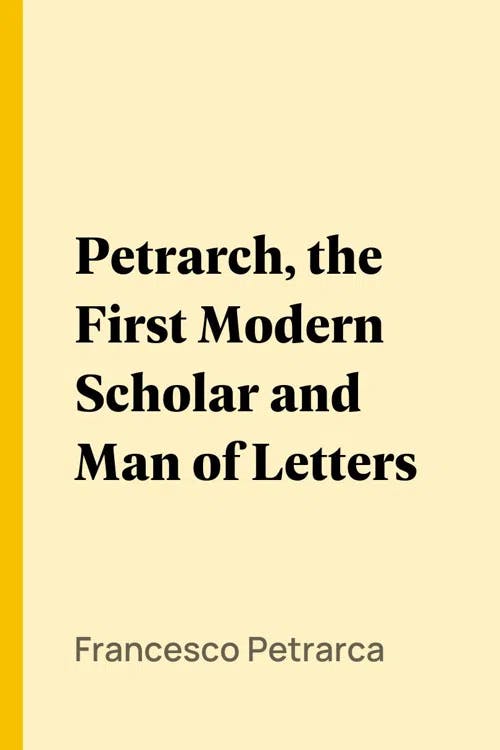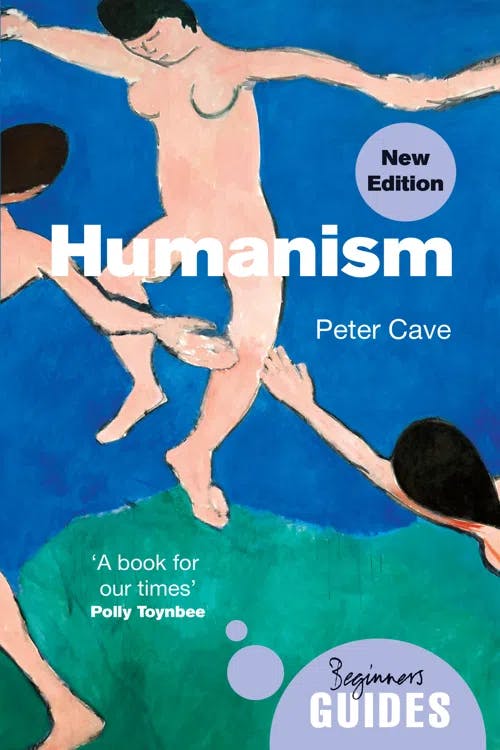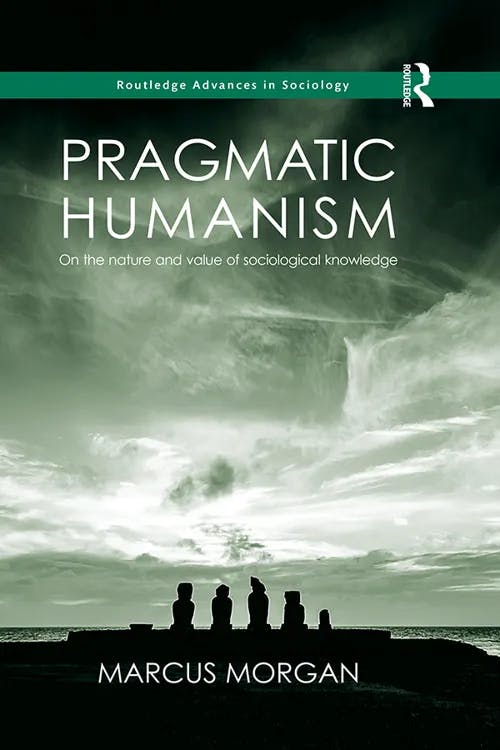What is Humanism?
PhD, Media Arts (Royal Holloway, University of London)
Date Published: 19.02.2024,
Last Updated: 16.07.2024
Share this article
Humanism defined
Humanism is a belief system, intellectual movement, and school of thought that highlights universal experiences and the nature of humanity. Humanism has taken on many definitions since its ancient inception; at some points in history, humanism has referred to a philosophical doctrine, at others, a specific set of morals or political orientation. In Humanism, Tony Davies explains the wide scope of the term:
The seven distinct sub-definitions of humanism rather conservatively offered by the Oxford English Dictionary represent only a fraction of the senses and contexts in which the word has been used, and a drastic simplification of those. (2008)
Tony Davies
The seven distinct sub-definitions of humanism rather conservatively offered by the Oxford English Dictionary represent only a fraction of the senses and contexts in which the word has been used, and a drastic simplification of those. (2008)
As you can see, humanism is a difficult concept to assign one unified definition to. But we can start with the etymology of the word. The term “humanism,” which only came into use in the 19th century, was based on the Italian “uminista.” During the Renaissance, umanista, or “humanist,” referred to those who studied and taught the humanities. During this period, there was a particular emphasis on classical studies. Latin and ancient Greek literature was deciphered to reveal profound works of poetry and storytelling, and fundamental philosophical principles. These ancient teachings would provide a basis for the humanist movements to come.
Generally speaking, humanism makes claims about the rights and powers of the individual to generate meaning and exercise free will. The implications of this human agency are in constant flux, as we will come to see. In the Renaissance era, where humanism was formally established as a school of thought, refined aesthetic tastes and intellectual progress created the sense that humankind contained boundless potential. Later humanist activity proposed that meaning and purpose are not predefined by activity in some divine realm, rather they are generated by the free will of individuals. Consequently, humanism became associated with scientism, offering an alternative to religious explanations of the world. More recently still, humanism has provided a set of moral guidelines and values that emphasize social responsibility, democracy, and freedom.
This study guide will trace the history of humanism, exploring some of the different ways in which it has been employed to represent social and intellectual circumstances over the centuries.
Ancient humanism
The earliest traces of humanism can be found in ancient Greek philosophy. The classicist art of antiquity centered human life, with marble statues depicting the details of an idealized human form, and great columned structures celebrating the achievements of an advanced society. This aesthetic tendency reflected the philosophies of the time. Presocratic thought contains maxims of a humanist nature, particularly what has remained of the work of sophist philosopher, Protagoras (490–420 c. BCE) who claimed,
Of all things Man is the measure, both of things that are, that they are, and of things that are not, that they are not. (quoted in Plato, Protagoras, c. 385 BCE, [1992])
This places humans as the source of answers to philosophical questions. Whether matters of moral judgment or ontological claims, it is human perception and human nature that determines reality. To this end, Protagoras taught that virtue and good judgment should be the central tasks of human existence.
The intellectual giants of the classical era were, of course, Socrates (470–399 BCE), Aristotle (384–322 BCE), and Plato (490–420 BCE ca), and they all contained elements of humanism in their philosophical thought. Although humanism was a philosophy that developed later, these thinkers – particularly Socrates – are sometimes considered to have laid the foundation for the humanist movements to come.
Written in stone on the entrance to the temple of Apollo were the words “know thyself.” Although there is some debate, this phrase is commonly thought to be the work of Socrates. It was also Socrates' position that an unexamined life is not one worth living. This was a phrase supposedly spoken at his trial for impiety before he was sentenced to death. What these ideas tell us is that Socrates’ philosophy places human exploration as the beginning of knowledge acquisition; for him, it is human’s natural curiosity that is the catalyst for knowledge. R. Nicol Cross unpacks the implications of Socrates’ position, asserting,
Self-knowledge, then, becomes Socrates’ one lifelong discipline and pursuit; and as the nature of the self is rational, and the nature of the rational is the ethical, ethics becomes for him the basis and starting-point and goal of metaphysics. And at this period of his life, at all events, we may class him as a Humanist… (1914, [2018])
R. Nicol Cross
Self-knowledge, then, becomes Socrates’ one lifelong discipline and pursuit; and as the nature of the self is rational, and the nature of the rational is the ethical, ethics becomes for him the basis and starting-point and goal of metaphysics. And at this period of his life, at all events, we may class him as a Humanist… (1914, [2018])
What is notable about these ideas is that they do not revolve around myth or faith, but rather the nature and activities of humankind. This is the reason humanism is associated with the values of ancient Greece. As we will come to see, whenever humanism rises to popularity throughout history, it often coincides with a revival of classicism.
Renaissance humanism
Renaissance humanism refers to an intellectual movement that spanned the 14th to the 16th century. Distinct from more modern humanist movements, Renaissance humanism, which emerged in Italy, had a particular approach to the moral and ontological claims of this human-centric philosophy.
The Renaissance ushered in an era of refined intellectual, social, and artistic tastes, based on values uncovered in the discoveries of Greco-Roman antiquity. Part of this shift was the changing attitudes towards religion and the relationship between humankind and the divine. This is not to say that Renaissance humanism rejected religion like some later humanist movements, but rather that religious interpretations began to change. Poet and intellectual, Francesco Petrarca (1304–1374) – commonly referred to as Petrarch – was paramount in these shifts.
Petrarch is thought to be the father of humanism. His discovery of the letters of Cicero (106–43 BCE) – an influential skeptic from ancient Rome – was a significant stimulus of 14th-century humanism and the Italian Renaissance more generally. Petrarch believed that the Middle Ages were a time of ignorance and intellectual darkness, characterized by blind religious servitude. In resistance to this religious authority, Petrarch turned attention to the beauty, power, and virtues of humanity and material existence. The Renaissance began reprioritizing human intellect over the teachings of the church and everyday life over the promises of the afterlife.
In the introduction to Petrarch, the First Modern Scholar and Man of Letters, James Harvey Robinson states,
The Middle Ages furnish us no earlier example of the psychological analysis which we discover in both the verse and prose of Petrarch. (2015)
James Harvey Robinson
The Middle Ages furnish us no earlier example of the psychological analysis which we discover in both the verse and prose of Petrarch. (2015)
Petrarch proposed a different approach to faith during the Renaissance, one that claimed that the mind was capable of knowing truths, of recognizing right and wrong, without the intervention of God. His poetry contained themes of mortality and the finite nature of human life that created not a sense of doom or pressures of obedience (as it might have in the Middle Ages) but rather an excitement for the possibilities and richness of existence. His prose was full of philosophical thoughts on the nature of humanity. In his 1361 letter to Boccaccio he wrote,
I am not unaware that although the reputation which attaches to right conduct may stimulate the mind to deserve it, true virtue is, as the philosophers say, a stimulus to itself; it is its own reward, its own guide, its own end and aim. (Petrarch, [2015])
Petrarch proposes that goodness is an inherent quality of the mind. He argued that its source is not outside of the self, nor is it stimulated by the theistic threat of punishment or promise of reward. For Petrarch, the virtue of humankind is a natural, innate function that is both the means and the end to “right conduct” (1361, [2015]). This demonstrates the way that Petrarch centers the nature of human beings in questions of morality and free will.
It may then be surprising to learn that Petrarch was a devout Catholic and his work includes consistent references to God. Petrarch reconciled the existence of God and the expansive freedom of humans by proposing that God instilled in us creative and intellectual powers. This allowed the achievements of humanity to be celebrated alongside religious faith.
And Petrarch was not alone in this position. Lorenzo Valla (1407–1457) was a Renaissance humanist who combined inherent moral virtue with Christianity, integrating ancient philosophies like stoicism and Epicureanism into theological studies. Like Petrarch, Valla’s humanism rested on the premise that God, as the creator, gave humans the power and responsibility of free will. Valla argued the importance of pleasure in humanism; pleasure, for Valla, was the reward of virtue. It is pleasure, be that material or spiritual pleasure, that motivates us and ultimately rewards us. Because of this, Valla is often charged with the attempt to enter hedonism into the teachings of the church. But, once more, what his position fervently accounts for is the agency of humans, for our capacity to act freely based on the pleasures of our own empirical faculties (see Valla’s On the Donation of Constantine, c. 1440, [2007]).
What emerges as an important feature of Renaissance humanism is this: Humanism of the time does not reject the existence of God but rather considers the freedom and virtue of humans to be part of God’s will.
Humanism during the Enlightenment
In the 17th and 18th centuries, known as the Age of Enlightenment, humanism emerged once more in Europe. The Enlightenment was characterized by massive advancements in scientific understanding of the world and the philosophical concerns of logic, rationalism, and empiricism. During this time, traditional religious authority was challenged – monarchies and churches were stripped of their powers of control – resulting in a more secular humanism.
During the Enlightenment, individual investigations of previously held beliefs were seen as the means of accessing true knowledge. The rationalists, influenced by René Descartes (1596–1650), were able to overcome skepticism and prove their own existence by engaging those logical faculties of the mind. By contrast, empiricist philosophers John Locke (1632–1704), and David Hume (1711–1767), following the teachings of Francis Bacon (1561–1626), relied solely on their senses to determine the make-up of reality. This search for knowledge and truth was guided purely by the evidence that experience presents us with, doing away with dogma and speculation. It was the humanist position during the Enlightenment that these powers of perception could replace God as a means to knowledge of the world.
The freedom of thought that humanism championed was put under different restraints in the wake of scientism, however. Peter Cave expands on this potential tension between humanism and scientism, writing,
Scientism asserts that there can be a unified scientific understanding of every aspect of the world, including human beings. Descriptions of human activities and values can be reduced to talk about molecules, genes, neural circuits or whatever is within the scientists’ vocabulary. (2022)
Peter Cave
Scientism asserts that there can be a unified scientific understanding of every aspect of the world, including human beings. Descriptions of human activities and values can be reduced to talk about molecules, genes, neural circuits or whatever is within the scientists’ vocabulary. (2022)
Not only did scientific inquiry have high standards of proof, but some of its theories – materialism for example – threatened to reduce human beings and their complex experiences to mere mechanisms. Despite this threat, humanism endeavored to keep the intricacies of human existence intact. As Cave asserts, despite scientific advancements, “there will remain features resistant to that type of understanding, features of human life that depend on interpretation, meaning and the individual’s viewpoint” (2022).
Some responses to the Enlightenment prioritization of logic and reason sought to reinstate emotion and expression into our understanding of the world. Romanticism, for example, is a movement often interpreted to be humanistic in its focus on the human experience. It champions subjectivity and the individual over industry and urban living, with poetry, music, and painting expressing the sublime experience of nature, beauty, and imagination. In Germany, thinkers like Johann Gottfried von Herder (1744–1803), Johann Wolfgang von Goethe (1749–1832), and Friedrich Schiller (1759–1805) combined the secularism of the Enlightenment and the personal character of Romantic thought to synthesize the objective and subjective in studies of natural science and aesthetics. This illustrates how humanism can be applied in a variety of ways – as both a feature of the Enlightenment and Counter-Enlightenment movements – to explore the human condition and its interaction with the world.
Modern humanism
Humanism up until the early 20th century had crucially positioned humankind as the nucleolus of knowledge and the top of an existential hierarchy. In modern humanism, this is problematized. By the Enlightenment, it was accepted that it was the sun at the center of our solar system, displacing our earth as the focal point of the universe. Humankind’s position was challenged further by thinkers like Charles Darwin (1809–1882), proposing the theory of evolution that made humans barely distinct from animals (The Origin of Species, 1859, [2019]), and Sigmund Freud (1856–39), who asserted that we don’t even have control of our own minds (A General Introduction to Psychoanalysis, 1917, [2019]). Modern humanism could no longer in good faith stand by the proposition that humankind was at the center of everything.
As a result, modern humanism is commonly associated with an ethical position, guiding people on how to act in the world. Based on compassion for other human beings, humanism of this kind was concerned with equality and democracy, maintaining that morality is an inherent feature of being human. Modern humanism was still associated with science, however, advocating human agency and inquiry as the means to knowledge acquisition, rather than divine intervention. By the 20th century, with more religious skepticism than ever, a new vision of the future had emerged. There was no longer a sense that the end of days was imminent – the threat of the apocalypse, for example, no longer instilled widespread dread– and this was replaced by the idea that the future was unfixed, wide open, and subject to change. For humanists, this provided all the more reason to live a good and meaningful life and to positively contribute to the development of history.
This sense of progress, of a utopia that might lie just beyond the horizon, however, was rejected by some facets of modernity. Modernist avant-garde art movements like Dada and Surrealism endeavored to reveal the ugly chaos of industry and war in a supposedly advancing society. What was the use of this humanist myth of progress in the wake of so much conflict and inequality? Through transgressive art and literature, this optimism of humanistic thinking was challenged in modernist culture.
Contemporary humanism
In contemporary times, it must be acknowledged that many of these humanist ideas that we have touched on are no longer completely relevant. In Pragmatic Humanism, Marcus Morgan emphasizes the retrospective problems of humanism, observing,
When the ostensibly universal figure of the human was successively invoked by the Greek, Renaissance, and Enlightenment philosophers, it of course arrived in a certain assumed form: almost always able-bodied, no doubt male, certainly un-enslaved and white, and likely bourgeois, European, and heterosexual. (2016)
Marcus Morgan
When the ostensibly universal figure of the human was successively invoked by the Greek, Renaissance, and Enlightenment philosophers, it of course arrived in a certain assumed form: almost always able-bodied, no doubt male, certainly un-enslaved and white, and likely bourgeois, European, and heterosexual. (2016)
It is this sort of thinking that has provoked contemporary theorists to reconsider the “man” at the center of humanism and their responsibilities. One result was the emergence of posthumanism, a movement that hoped to extend beyond the confines of humanism to a more contemporary concept of humankind and its place in the world. Posthumanism posits that people cannot be so easily distinguished from the natural world, from animals, or even machines. Observing the environmental detriments of placing humans and their needs as the top priority, posthumanism highlights the way that humans are entirely interconnected to their environment and the rest of the material world.
We can observe, especially with the development of artificial intelligence, that the hierarchies of humanism are perhaps less compelling than ever. We are now arguably not unique in our ability to generate thought and solve complex problems. Once more, posthumanism seeks to problematize the distinction between humans and the rest of the world, pushing thought beyond the tenets of humanism.
Concluding thoughts
Humanism, having been around in some form or other since antiquity, has taken on a myriad of meanings over the centuries. In some instances, it has explored the unique privileges given to us by God. In others, it has called for the dissolution of religion, placing humans at the center of the known universe, creation, and the understanding of reality. At times, humanism represented an effort to explore the qualities of human existence and the richness of life in a time of intense skepticism and scientific rigour and, at others, it presented a guide to ethical and community-minded living. What unifies this range of ideas is the focus on the unique responsibilities and challenges that face humanity.
Further reading on Perlego
Renaissance Humanism: An Anthology of Sources (2014) by Margaret L. King
Humanists and Holy Writ (2018) by Jerry H. Bentley
Renaissance Thought and the Arts (2020) by Paul Oskar Kristeller
Humankind and Humanity in the Philosophy of the Enlightenment (2023) by Stefanie Buchenau and Angsar Lyssy
Classical Humanism and the Challenge of Modernity(2015) by Bas van Bommel
Humanism FAQs
What is humanism in simple terms?
What is humanism in simple terms?
Where did humanist thought come from?
Where did humanist thought come from?
Who are some famous humanists?
Who are some famous humanists?
What are the key concerns of humanism?
What are the key concerns of humanism?
Bibliography
Cave, P. (2022) Humanism: A Beginner’s Guide. Oneworld Publications. Available at: https://www.perlego.com/book/2743184/humanism-a-beginners-guide-updated-edition-pdf
Cross, R. N. (2018) Socrates, The Man and His Mission. Taylor and Francis. Available at: https://www.perlego.com/book/1478605/socrates-the-man-and-his-mission-pdf
Darwin, C. (2019) The Origin of Species. Big Cheese Books. Available at:
https://www.perlego.com/book/2723128/the-origin-of-species
Davies, T. (2008) Humanism. Routledge. Available at: https://www.perlego.com/book/1608565/humanism
Freud, S. (2011) A General Introduction to Psychoanalysis. Barnes & Noble. Available at:
Morgan, M. (2016) Pragmatic Humanism: On the Nature and Value of Sociological Knowledge. Taylor and Francis. Available at: https://www.perlego.com/book/1631140/pragmatic-humanism-on-the-nature-and-value-of-sociological-knowledge-pdf
Petrarca, F. (2015) Petrarch, the First Modern Scholar and Man of Letters. Perlego. Available at:
Plato (1992) Protagoras. Hackett Publishing Company, Inc. Available at: https://www.perlego.com/book/3898957/protagoras-pdf
Robinson, J. H. (2015) “Introductory,” in Petrarca, F. Petrarch, the First Modern Scholar and Man of Letters. Perlego. Available at:
https://www.perlego.com/book/1844069/petrarch-the-first-modern-scholar-and-man-of-letters-a-selection-from-his-correspondence-with-boccaccio-and-other-friends-designed-to-illustrate-the-beginnings-of-the-renaissance-pdf
Valla, L. (2007) On the Donation of Constantine. Harvard University Press.
PhD, Media Arts (Royal Holloway, University of London)
Aoiffe Walsh has a PhD in Media Arts from Royal Holloway, University of London. With a background in film studies and philosophy, her current research explores British literary modernism, with a particular focus on surrealism between the wars. She has lectured and published pieces on documentary and film theory, film history, genre studies and the avant-garde.

